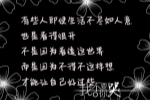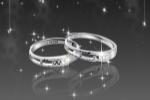
实用英语作文万能句型中考【一】
中心论点是什么?
论点一般是判断句,有判断词,或能转换为判断句。观点鲜明,支持什么,反对什么,具有很强的倾向性。找论点的方法一般有如下几种:
1.位置法
(1从题目入手,捕捉文章中心论点
①题目是一句话的即为观点。题目是中心论点有这样两个原则:a.该题目必须为肯定句;b.该题目必须为判断句。
②有的题目是由并列短语构成的,论点则是二者之间的关系。如“敬业与乐业”——“敬业与乐业的关系是什么?”文中回答二者关系的句子便是论点。(思考格式:标题+“的关系是什么”
③有的题目是由偏正短语构成的,在题目上加“是什么”,文中回答的句子便是论点。如“成功的秘诀”——“成功的秘诀是什么?”(思考格式:标题+“是什么”
(2从开头和结尾入手,捕捉文章的“中心句”。
论点在文章开头点出的,即所谓开宗明义、开门见山提出论点。论点在文章结尾点明的,大多有表总结性的词语,如“所以、总之、因此、总而言之、归根结底……”往往先提出分论点,层层论述,在结尾处归纳出中心论点。
(3看中间,提炼论点。
有的文章在中间提出中心论点。如《敬业与乐业》开篇先引用《礼记》《老子》中的“敬业乐群”“安其居、乐其业“,然后才引出中心论点:我确信“敬业乐业”四个字,是人类生活的不二法门。
2.通过论据反推论点
分析论据,无论是事实论据还是道理论据,都是为证明论点服务的,看它证明什么问题,肯定什么,支持什么,即可得出文章的论点。
3.摘录法
议论文一般只有一个中心论点,有的议论文还围绕中心论点提出几个分论点。如:《怀疑与学问》中:中心论点:“学者先要会疑”“学则须疑”。分论点一:怀疑是从消极方面辨伪去妄的必要步骤。分论点②:怀疑是从积极方面建设新学说启迪新发明的基本条件。区别中心论点和分论点要明确:分论点是用来补充或证明中心论点的。
[注意]分清论题和论点:
论题:作者要议论的现象、问题、事实,没有任何褒贬感情倾向。它规定和限制了文章的论述范围和重点,不表明是否正确。
论点:作者的观点,有明确的褒贬感情倾向,即肯定或否定、赞扬或批判,论点中一定含有主语、谓语。
本段采用了什么论证方法?有何作用?
答题步骤:分清事实论据和道理论据
事实论据包括有代表性的事例、确凿的数据、可靠的史实等,所用的事例可以是具体的,也可以是概括的。道理论据一般包括人们公认的正确可行的道理、格言、名人名言、原理、定理等。
[注意]答题时往往要求答出直接证明的那个观点,这个观点未必是全文的中心论点。
【答题格式】这是……论据,在文中起着证明……(证明论点,如果有分论点,则写出所证明的分论点,否则写中心论点的作用。
为本文/本段补充一个论据
【答题格式】按照“人物/事物+体现该文或该段观点的关键词+具体事+结果”的公式,最好是名人事例,切忌张冠李戴、细节失真。还要注意字数简洁。
该段运用了什么论证方法,有什么作用?
1.辨别论证方法:按举例论证——比喻论证——对比论证——道理论证的顺序进行排除,这样可以快速确定且保证万无一失。但要注意的是论证方法的运用不一定是单一的,有时是两种或几种方法兼用。包含文章内容较多、篇幅较长的且鲜明地论证了论点的自然是主要的论证方法,反之则次之。在答题时要把握由主到次的答题顺序。
2.分析论证方法的作用,具体如下:
(1举例论证:通过举具体的事例加以论证,从而使论证更具体、更有说服力。
【答题格式】使用了举例论证的.论证方法,文章列举了什么什么的事例,具体地有力地证明了什么什么的论点(如果有分论点,则写出它证明的分论点,否则写中心论点,从而使论证更具说服力。
(2道理论证:通过讲道理的方式证明论点,使论证更概括更深入,更有信服力。
【答题格式】使用了道理论证的论证方法,引用某某,证明某某的论点,进而证明了什么什么的中心论点,增加了权威性,增强了说服力。
(3比喻论证:通过比喻进行论证,使论证生动形象、浅显易懂。
【答题格式】使用了比喻论证的论证方法,将什么什么比作什么什么,生动、形象地证明了本文(段……的论点,从而把抽象深奥的道理阐述得生动形象、浅显易懂。
(4对比论证:对比论证的作用就是突出强调。
【答题格式】使用了对比论证的论证方法,作者把什么什么与什么什么对比,使之形成鲜明对照,突出强调了什么什么的论点。
(5引用论证:引用论证比较复杂,这与具体的引用材料有关,有引用名人名言、格言警句、权威数据、名人轶事、笑话趣闻等各种情况,其作用要具体分析。
【答题格式】使用了引用论证的论证方法,通过引用某某证明某某的观点,使论证更有说服力(或更有趣味性,吸引读者往下读。
文中为什么举作者自己的事例?
【答题格式】
(1拉近作者与读者的心理距离,使文章产生亲切感真实感;
(2事例论证,具体有力地证明了★★的论点,使论证更有说服力。如果在开头,则接着写;
(3引出论点或论题。
第x段“xxx”词去掉好不好,为什么?
【答题格式一】不好。因为⑴“……”词有……的意思,在程度/数量/范围/语气等上起了限制作用,更加符合事实;⑵这体现了议论文语言的严密性。
【回答格式二】⑴该词去掉后语句意思发生了某某方面的变化,与事实不符。⑵去掉不能体现议论文语言的严密性。
某某代词指代什么内容?
【答题思路】
(1一般往所在句的前边找,往往是前边的那句话,或那句话的一部分。
(2找到后还要放入代词所在的句子中读读,检验是否合适。
某个段落的作用是什么?
文章开头有什么作用?
(1名言/事例/比喻开头,而且论点就在名言后边,答题格式是:①道理/事例/比喻论证,引出并证明了……的论点。如果名言比较幽默,还要写上②吸引读者阅读兴趣。
(2直接提出论点,答题格式是:开门见山,直接亮明了作者的论点。此种情况较少。
(3虽然是名言、事例或比喻开头,但后面跟的是论题,答题格式是;①引出论题,②吸引读者阅读兴趣。
(4还有一种开头不太多见。先提出一种片面甚至错误的观点,举出一些貌似能证明的事例或名言,与中心论点截然相反。答题格式是:提出错误片面观点,举出片面事例或名言,为本文树立批驳的靶子,从而引出本文论点。
文章结尾有什么作用?
(1总结全文,得出或深化论点;
(2发出号召。提出希望、展望。
请阐述本文的论证过程/思路/层次
【答题思路】
(1先提出……的论点;
(2然后用……论证方法和……论证方法证明论点;
(3最后得出……结论。
联系实际生活谈自己的看法
答题时,同意或不同意作者的观点都可以,只要观点明确,言之有理,言之有物就行,一般答题形式为“观点+理由”。
【答题格式】
(1联系原文内容或论点。
(2要有明确的观点、确凿的论据。
(3不要泛泛而谈,阐述理由时,要论据充分、典型,也就是理由恰当、全面。可以引用名言或举出具体的例子来证明自己的观点或认识。
(4语言表达要体现议论文语言简洁、准确、严密、生动、鲜明等特点。
实用英语作文万能句型中考【二】
1 No one can deny the fact that ...
2 The idea is hardly supported by facts.
3 Unfortunately, none of the available data shows ...
实用英语作文万能句型中考【三】
In short, it can be said that
实用英语作文万能句型中考【四】
议论文定义:对某一事物或现象发表自己观点、立场、态度或主张的文体。议论文三要素:论点、论据、论证。
论据的类型:事实论据、道理论据。
常见的论证方法:
举例论证、道理论证、对比论证、比喻论证。
议论文的基本结构:提出问题、分析问题、解决问题。
论证的方式:立论、驳论。
实用英语作文万能句型中考【五】
考辅P42
1.IgaveTomthebook.//
2.Heboughthismothersomeflowers.//
3.Thebridgewasbuiltbyworkerslastyear.//
4.Wehavetofinishtheworktoday.//5.Hewilldohishomeworktomorrow.//
6.Wecleantheroomseveryday.//7.Thewriterspent3yearsonthebook.//
8.Itisabookwithalotofbeautifulpictures.//
9.Thebooksoldverywellduringthefirstweek.//firstweek.
10.Marywastheonlyoneintheoffice.//
11.Shefinishedherworkat10o’clock.//Shedidn’12.Shehadtotakeataxihomebecauseitwastoolate.
13.LizaandMikearrivedattheGreatWallintwohours.
14.Theywerehappytogettothetop.//
15.TheyenjoyedthemselvesontheGreatWall.//
16.ThepostmansentSusanandTommyapaperbox.
17.Theyopeneditandfoundapresentfromtheirfriend.
18.Theybothlikedthepresentandfeltveryhappy.
19.Alicedidn’tfeelwelltoday,soshewenttothehospital.
20.Thedoctoraskedhersomequestions.//
21.Thedoctordidn’tgiveheranymedicineintheend.
(全真1)
1.ThecapitalAirporthasbeeninusefor20years.//
2.ThecapitalAirportisthelargestoneinChina.//
3.Ihavenevertakenaplane.MyfriendLiPing,either.//
(全真2)
1.Fathergave$20formetobuysomebooks.//
2.IwasexcitedwhenIsawsomanygoodbooksinthebookstore.
3.ButsomebookswouldcostmorethanIhave.//
ButIdidn’//(全真3)
1.ManyChinesefriendswenttotheparty.2.Tonywasgivenalotofpresentsbyhisfriends.//Tony’
3.SeeinghisChineseteacheratthepartymadeTonyveryhappy.//(全真4)
1.Iwanttoeatsomething.//2.Therefrigeratorisempty.//3.Bobspentfifteenyuanonthehamburger.///(全真5)
1.Mr.Wangdoesn’tworkinthatfactoryanylonger.//
2.Mr.Wanglefthomeearlierinordertocatchthebus.3.Mr.Wangfindsitnoteasytogetalongwiththatyoungguy.//(专家1)
1.Manypeoplewentshoppingyesterday.
2.Janespent4hourstobuyNewyeargifts.//
3.Shewassotiredthatshecouldn’twalkanylonger.//
(专家2)
1.Myfriendssaidtome,“Areyoufree?”
2.Shewantedmetogoshoppingwithher.
3.Shethinksitapleasuretogoshoppingwithafriend.
实用英语作文万能句型中考【六】
1) Many nations have been faced with the problem of ……
2) Recently the problem has been brought into focus.
3) Recently the phenomenon has become a heated topic.
4) Recently the issue has aroused great concern among ……
5) Nowadays there is a growing concern over ……
6) Never in our history has the idea that …… been so popular.
7) Faced with ……, quite a few people argue that ……
8) According to a recent survey, ……
9) With the rapid development of ……,
10 When it comes to…, (当说到…
二、列举观点
I.Some people think/believe that…,
Other argue/claim that the opposite/reverse is true
1.Obviously television has both advantages and disadvantages.
2.Living in a city has both advantages and disadvantages.
3.Compared with cars,bikes have their advantages and disadvantages. ,
4.Although computers bring people a lot of convenience,they have many disadvantages.
5....has many advantages.For example,…
6. However,just as every coin has two sides,…has it’s disadvantages.
II…play(san important role/part in……
1.Computers play an important role in science and technology.
2.Computers play a more and more important role in our life.
3.Computers play an increasingly important role in our studies.
4.Education plays an important part in developing our mind.
5.Addiction to alcohol and drugs plays a role in homelessness.
6.Advertisement plays an informative role in our daily life.
7.In the past,letters played a decisive role in long-distance communication.But now,telephone,email,and fax have taken their place.
III.With the development of…
1.With the development of our economy,many Chinese families can afford a car.
2.With the development of our economy and society,pollution is more and more serious.
3.With the rapid development of Science and technology,people can get a college degree by taking online-courses at home.
4.With the current social and technological developments,employees with more knowledge and higher academic degrees are needed.
5.With the rapid increase of China's population,housing problem is becoming more and more serious.
6.With more and more women entering the society,people's attitude towards women is changing.
7.With the deepening of Chinese reform and opening up, an increasing number of (a growing number of,a significant number of
families can afford a car.
三、陈述自己观点
There is probably some truth in both arguments/statements,but…
四、批驳
1)It is true that ……, but one vital point is being left out.
2) There is a grain of truth in these statements, but they ignore a more important fact.
3) Some people say ……, but it does not hold water.
4) Many of us have been under the illusion that……
5) A close examination would reveal how ridiculous the statement is.
6) It makes no sense to argue for ……
7) Too much stress placed on …… may lead to ……
8) Such a statement mainly rests on the assumption that ……
9) Contrary to what is widely accepted, I maintain that ……
10) No one can deny the fact that ……
11) The idea is hardly supported by facts.
12) Unfortunately, none of the available data shows ……
13) Recent studies indicate that ……
14) There is sufficient evidence to show that ……
15) According to statistics proved by ……, it can be seen that ……
五、结尾句型 :
英语议论文多以简要总结全文或对所讨沦的问题提出解决办法来结尾。总结全文时除常用到in one/a word,generally speaking,to conclude等外,没有固定模式。提出解决办法时却常使用下一句型:
1) From what has been discussed above, we can draw the conclusion that ……
2) It is high time that strict measures were taken to stop ……
3). We should take measures to control the rapidly increasing world population.
4). We’d better take effective measures to prevent students from cheating on exams.
5). The government decided to take strong measures against drug abuse.
6). Urgent measures should be taken to prevent terrorists from carrying out further attacks.
7) It is necessary that steps should be taken to ……
8) In conclusion, it is imperative that ……
9) There is no easy method, but ……might be of some help.
10) To solve the above-mentioned problem, we must ……
11) In summary, if we continue to ignore the above-mentioned issue, more problems will crop up.
12) With the efforts of all parts concerned, the problem will be solved thoroughly.
13) We might do more than identify the cause ; it is important to take actions to ……
14) Taking all these into account, we ……
15) Whether it is good or not /positive or negative, one thing is certain/clear……
六、其他句型
I、There be结构
There+be+主语+(修饰成分,表示客观存在的\'人或事物。 There must be a lot of fuel in the tank.
There remains nothing more to be done.
There is no point in talking about it again.
There is something you don't know.
There is not enough time to do the work. .
II、名词化结构
名词化结构用以表明抽象思维的逻辑性和概念化,从而使语体更加正式、更加具有书面语风格。
1.由of连接主谓关系
That the earth revolves around the sun causes the changes of the seasons.
名词化:The revolution of the earth around the sun causes the changes of the seasons.
2.由0f连接动宾关系
One of the most important natural phenomena is that energy is transmitted from one point to another in waves.
名词化:One of the most important natural phenomena is the transmission of energy from one point to another in waves.
3.用of连接含有by的短语,把简单句转换成名词短语
实用英语作文万能句型中考【七】
Therearesomecherriesinthebasket.(一般疑问句,否定回答划线部分提问Kittylikesthebluedress.(用thepinkdress改为选择疑问句Don`tplaywithfires.(换一种说法
Joelikesreading.Dannylikesreadingtoo.(把两句连成一句Pleaseeatsomecakesandbiscuits.(改为否定句划线部分提问Thereissomewaterintheglass.(划线部分提问划线部分提问Whatdayistoday?
What`sthedatetoday?
Whatdoyouusuallydoafterdinner?
Whichpearsdoyouwant,thegreenonesortheyellownoes?Whichwesternholidaydoyoulikebest?Whenisit?
WhatdoyoudoattheLanternFestival?
5B2
Thosebooksareours.(同义句划线部分提问划线部分提问
ThosecrayonsareDanny`s.(.(用Alice改为选择疑问句Arethesetheirschoolbags?(单数句划线部分提问
Theyridetheirbicyclestothepark.(用May改写
Thecocooniswhite.(用browng改为选择问句划线部分提问Heisfouryearsold.(改为一般过去时
Iwasathomeyesterdayevening.(改为一般疑问句
Thecaterpillarslikeeatingleaves.(改为单数句划线部分提问划线部分提问
WhatdoyoueatattheMid-autumnFestival?(根据实际情况回答
实用英语作文万能句型中考【八】
(一)改写一般疑问句:
(1)原句中有be动词的,将be动词提前,其他顺序不变。
例如:Thisisacat.变为Isthisacat?
(2)原句中有情态动词的(can/may/shall/would)将情态动词提前,其他顺序不变。例如:Hewouldlikeapie.变为Wouldhelikeapie?
(3)原句中是一般动词的,在句首加助动词do或dose(用于主语是第三人称动词单数的句子),其他顺序不变。例如:Iplaytheguitar.变为Doyouplaytheguitar.
(4)原句中的some变any。
注:以情态动词开头的一般疑问句,并且要求对方做肯定回答的`some不变。
(5)原句中的第一人称改为第二人称。例如:Iamanurse.变为Areyouanurse?
(6)以dose开头的一般疑问句,原来动词的第三人称单数形式要变回原形。例如:Hereadsastorybook.变为Dosehereadastorybook?
(二)改写否定句:
(1)原句中有be动词的,直接在be动词后面加not。例如:Itisadog.→It’snotadog./Itisn’tadog.
(2)原句中有情态动词的,直接在情态动词后加not。
例如:Iwouldlikeahotdog.→Iwouldnotlikeahotdog.
(3)原句中是一般动词的,在一般动词前加don’t或doesn’t(用于主语是第三人称单数的句子),doesn’t后面用原型。例如:Iseethreehamburgers.→Idon’tseethreehamburgers.
原句中的some变any例如:Ihavesomebreadan
dmilk.→Idon’thaveanybreadandmilk.
(4)以let开头的祈使句,如果是letus或letme,直接在其后加not;如果let后面其他人称代词宾格(you、him、her、them、it)就在let后面加助动词don’t。例如:Letusgotothepark.→Letusnotgotothepark.再如:Letthemdohomework.→Don’tletthemdohomework.
(三)对划线部分提问:
对划线部分提问,就是先把一个陈述句的划线部分去掉,然后变为一个特殊疑问句:一是特殊疑问句+一般疑问句;
二是特殊疑问句+陈述句(对主语或主语的定语提问,therebe结构除外)
⑴划线部分是人,用who提问。
⑴划线部分是主语,用who提问,who后面的动词要用第三人称单数形式。如:Whois;Wholikes;Whohas?
方法:who+原句的剩余部分
例如:①HelenandMikearelisteningtomusic.
→Whoislisteningtomusic?
②Ihavesomemodelplanes.
→Whohasanymodelplanes?
⑵划线部分是表语,用who提问。
方法:Who+剩余部分的一般疑问句形式
⑵划线部分是事或者物,用what提问。
方法:what+剩余部分的一般疑问句形式。
注:如果原句是therebe句型,直接用What’s+地点状语来提问。例如:①Wewouldliketobuysomethingsforaparty.
→Whatwouldyouliketobuyforaparty?
②Therearealotofcakesintheplate.
→Whatisintheplate?
⑶划线部分是物主代词或名词所有格,用Whose提问。
方法:⑴划线部分是主语的定语时,Whose+剩余部分
例如:Ourclassroomisbright.
→Whoseclassroomisbright?
⑵划线部分是表语或表语的定语时,Whose+剩余部分的一般疑问句形式例如:①ThewomanisSuYang’steacher.
→Whoseteacheristhewoman?
注:对某部分的定语提问,被修饰的部分跟随特殊疑问句往前提②ThispurseisYangLing’s.
→Whosepurseisthis?
⑷划线部分是地点,用where提问。
方法:where+剩余部分的一般疑问句形式
例如:TheyarehamingaMathslessonintheclassroom..
→WherearetheyhavingaMathslesson?
⑸划线部分是“多少”,用howmany或howmuch提问。
方法:⑴句中是可数名词的用Howmany+剩余部分的一般疑问句形式例如:Therearefifteentreesintheplayground.
→Howmanytreesarethereintheplayground?
⑵句中是不可数名词的用Howmuch+剩余部分的一般疑问句形式例如:Ihaveaglassofjuiceforbreakfast.
→Howmuchjuicedoyouhaveforbreakfast?
⑹划线部分是时间,用when或whattime(具体的几时几分)提问。方法:⑴when+剩余部分的一般疑问句形式
例如:SuYangandSuHaiareathomeonSundaymorning.
→WhenareSuYangandSuHaiathome?
⑵问具体的时间直接用Whattimeisit?或What’sthetime?问
例如:It’sthreeforty-five.
→Whattimeisit?或What’sthetime?











